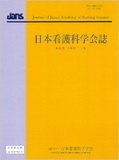Japanese
English
- 販売していません
- Abstract 文献概要
- 参考文献 Reference
要旨
目的:国外のピアサポーターによるPeople Living with HIV(PLWH)の心理社会的転帰の支援に関する文献を整理,分析し,心理社会的転帰を改善したとされた支援策を抽出する.
方法:PubMed,MEDLINE,CINAHLを用い(“PLWH” AND (“antiretroviral therapy” OR “quality of life”)) AND (“peer-led intervention” OR “peer support”)で文献検索した.
結果:先行研究で心理社会的転帰を改善したとされた支援は,カウンセリング,アドヒアランスの障壁の克服等に関する議論や個別介入であった.その結果,社会交流が増加しスティグマの軽減,経験に基づく助言で自己効力感が向上,アドヒアランスや自己管理が促進しQOLの向上を認めた.
結論:ピアサポーターの経験に基づく支援はPLWHの社会交流の増加,スティグマが軽減し,QOL向上への寄与が示された.
Objective: To identify improve psychosocial outcome methods by reviewing and analyzing the foreign literature on the support of psychosocial outcomes of People Living with HIV(PLWH) by peer supporters.
Methods: A literature review was performed from articles published up to June 2022 using PubMed, MEDLINE, and CINAHL using (“PLWH” AND (“antiretroviral therapy” OR “quality of life”)) AND (“peer-led intervention” OR “peer support”).
Results: Supports that were reported to improve psychosocial outcomes in previous studies included counseling, discussions on overcoming barriers to adherence, and individualized interventions. The results showed that social interaction increased, stigma was reduced, self-efficacy improved with experience-based advice, adherence and self-management were promoted, and quality of life was improved.
Conclusoin: This review showed that experiential support from peer supporters helped PLWH to improve their social interactions, reduce their stigma, and improve their quality of life.
Copyright © 2022, Japan Academy of Nursing Science. All rights reserved.


